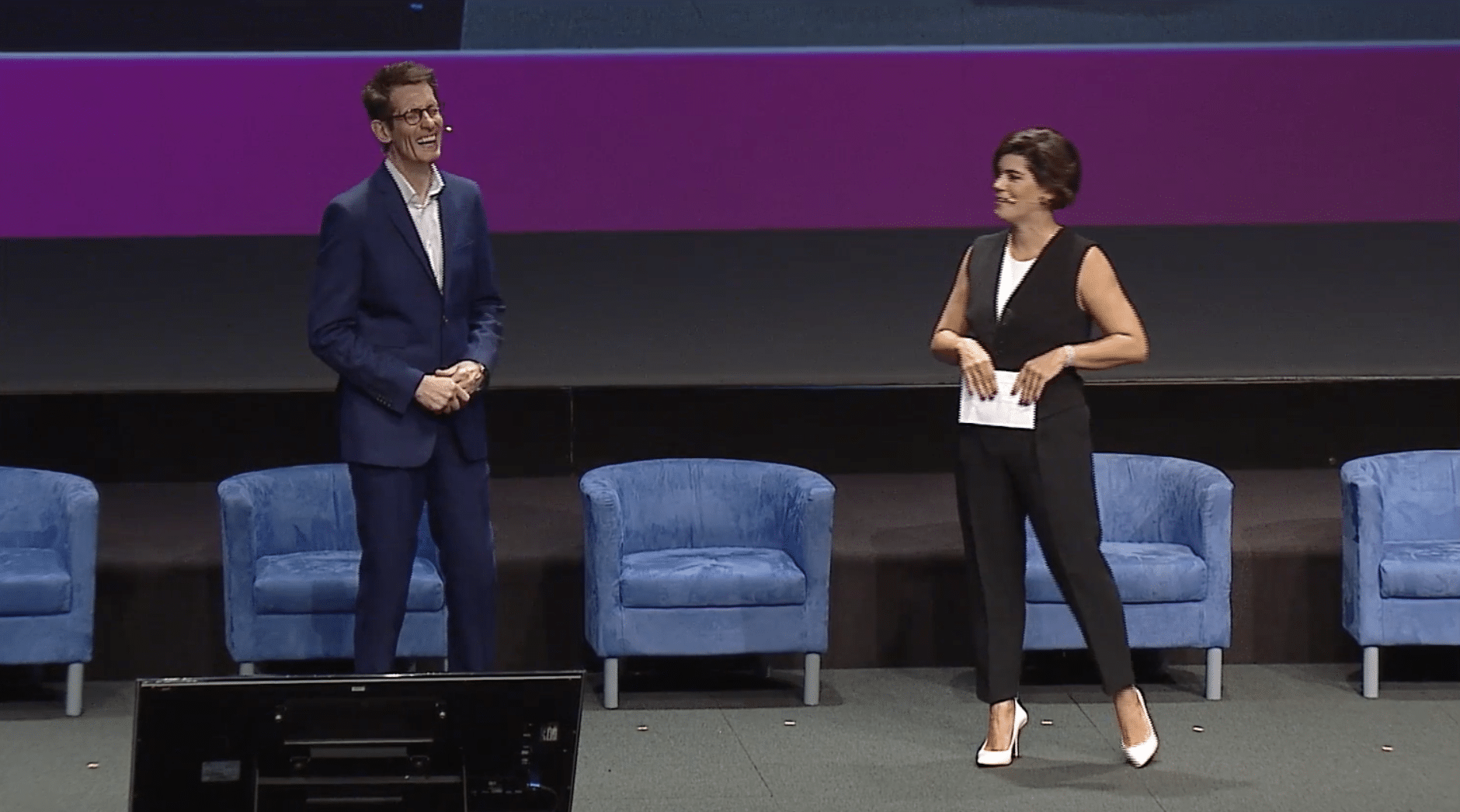LISBON — After a wait of more than two years, the Radiodays Europe conference finally arrived in a warm and sunny Lisbon. Delegates could choose meeting in-person at the masked and COVID-secure Congress Center, or participating remotely online, with 60% making the journey to the Portuguese capital.
In the opening session, local singer Dino D’Santiago got the Sunday morning audience on their feet dancing. He noted the diverse global influences found in the host city and urged a more open and multicultural approach in the radio industry.
General Manager of Radiodays Europe, Peter Niegel, set out the big questions facing the audio sector, and reflected in the conference program. “How can we broker the divide between linear and on-demand, between analogue and digital, between younger and older listeners, between third-party platforms and owned platforms,” he asked.
COVID Impact
Unsurprisingly, much was focused on the impact of Covid. Marianne Bugge Zederkof, vice president of the Association of European Radios (AER) stressed the continued relevance of the medium, saying: “Radio has continued to play a crucial role throughout the pandemic, proving again to be a source of entertainment and companionship, but more importantly reliable news and information for millions of listeners. As a result, radio remains for more than a decade now, the most trusted medium in Europe.”
Adam Bowie from BBC World Service reported that the pandemic had changed patterns of audio consumption, with podcast platform Acast finding that morning and evening commuter spikes in listening had been replaced with more steady consumption across the day. In a later session, Ruth Fitzsimons, managing director of Podfront UK quoted IAB figures, saying: “During the pandemic we saw a large increase in podcast listening. 38% of people who started listening during the pandemic plan to continue to do so more in the future, so it’s continuously growing.
“Overall listening to a podcast on a daily basis has increased 16% over the last 18 months,” she added. “We see that overall, the frequency of listening from pre-Covid times is up 35% – but the fastest growing demographic in listening to podcasts are 45-54 year olds.”
In the Radio Summit session, hosted by Folder Media’s Matt Deegan, the director general of Rundfunk Berlin-Brandenburg, Patricia Schlesinger, said the pandemic had demonstrated the value of public broadcasting. “It was a good opportunity for us to show what we were here for,” she explained. “If you consider public radio being a part of the backbone of democracy, part of the basics, then we could show that — as difficult as it was — they can get reliable information. I think it helped us to show the people that we are what you need in difficult times.”
Ubiquity Or Bust
In a keynote session, the new CEO of TuneIn, Richard Stern, argued that one of radio’s key strengths was being easy to use. “If there’s an epidemic in digital media, it’s customers forced to curate their own media. And the algorithms are making it worse. They’re amplifying the same things over and over, it drives people crazy. A lot of us just want to press play. We want to go to listening something great as quickly as possible and human beings help us do that.”
In digital, Stern argued, “it’s ubiquity or bust” — this is more than having an app or a website, it’s being everywhere a consumer wants to listen. He cited the example of an exercise bike in New York, which logged more listening hours on TuneIn in August than any other device — a spin class instructor loved listening to Boom FM and left it playing for nine hours every day. “Radio must be everywhere to compete and grow,” he urged.
Technical Innovation
Elsewhere at the conference, sessions demonstrated new technological innovations. Jason Panayotou from eyeora demonstrated the benefits of VR for radio stations. “The way to think about it is almost like a social platform that stations are using a lot more,” he explained. “Eyeora is like a social VR platform that you can use in a variety of ways… 15 minutes spent in a VR headset is very engaging, you’re almost transported to another world,” he said.
Kevin Leach, Founding Director of In:Quality discussed the growth of the open standard SIP, which he described as “the glue which holds all of our services together… it’s fast becoming the replacement for ISDN and the standard for connecting between various manufacturers’ equipment and applications”. He demonstrated a USB SIP codec with a touchscreen, with a USB microphone and headphones plugged in, which talent at home or on a remote outside broadcast could use to connect to existing devices already in use at the station.
Philippe Generali, President and CEO of RCS Worldwide spoke about the importance of disaster recovery for radio, noting the increasing threat from computer viruses and malware targeting media outlets. He explained how if a station is disabled for any reason, RCS’s cloud-based technology can take over, streaming the station’s audio directly via the Revma streaming solution from the cloud to a transmitter, web stream or emergency studios. When the station is ready to resume, Zetta Cloud will return it to normal service within minutes.
Celebrity guests at Radiodays Europe included Jean-Michel Jarre, who spoke remotely to offer a musician’s perspective on the audio business. “I would say electronic and acoustic music has always been linked to public radio,” he commented. Hypnotherapist Paul McKenna spoke to international audio consultant Francis Currie about his journey from radio presenter to becoming a best-selling author, motivational speaker, and therapist to the rich and famous.
As is traditional at the event, the final session in Lisbon saw the next host city revealed. Radiodays Europe 2022 will take place in Malmö, Sweden, from May 15–17, 2022.
[The top image features Radiodays Europe hosts Paul Paul Robinson and Inês Lopes Gonçalves.]

